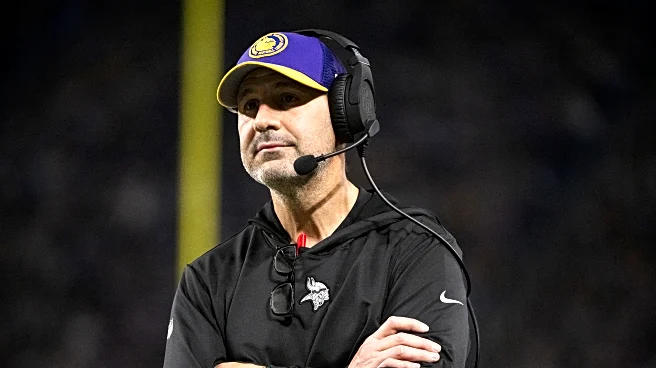Rapid Read • 8 min read
The Pittsburgh Penguins and Columbus Blue Jackets are set to face off in a new Eastern Conference rivalry. The Blue Jackets, now part of the same division as the Penguins, are visiting Pittsburgh for the first time as Eastern Conference members. This rivalry is expected to grow due to the proximity of the cities and the competitive nature of both teams. The Penguins are currently ranked 14th in the NHL for power play efficiency, led by Sidney Crosby, while the Blue Jackets share the same power play percentage. Injuries are affecting both teams, with key players like Rob Scuderi and Chuck Kobasew out for the Penguins, and several Blue Jackets players on injured reserve.
AD
The development of a rivalry between the Penguins and Blue Jackets could significantly impact the hockey landscape in the Eastern Conference. Such rivalries often increase fan engagement and attendance, benefiting both teams financially and culturally. The Blue Jackets' move to the Eastern Conference is seen as a strategic advantage, allowing them to play in a more favorable time zone and potentially grow their fan base. This rivalry could also enhance the competitive dynamics within the division, influencing playoff standings and team strategies.
As the season progresses, the rivalry between the Penguins and Blue Jackets is expected to intensify, with both teams aiming to secure playoff positions. The Penguins will continue to rely on their star players like Sidney Crosby and Evgeni Malkin to maintain their competitive edge. Meanwhile, the Blue Jackets will focus on improving their on-ice performance and attracting more fans to their games. The outcome of their upcoming matches could shape the future of this budding rivalry.
The rivalry could have broader implications for the NHL, potentially influencing league marketing strategies and media coverage. It may also affect player trades and team management decisions as both teams strive to outperform each other. The cultural exchange between the cities could foster a deeper appreciation for hockey, contributing to the sport's growth in regions where it is less popular.
AD
More Stories You Might Enjoy












